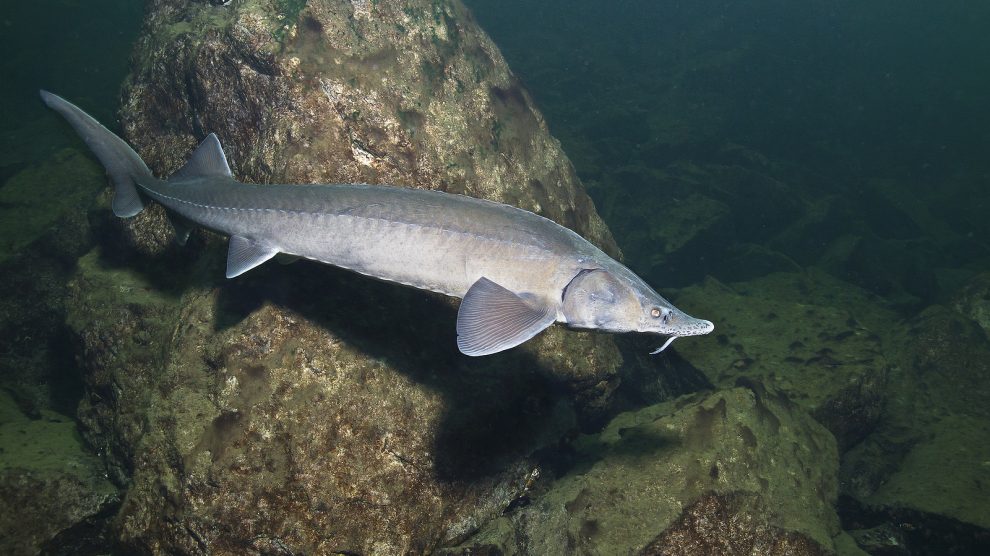The Danube, as well as the Rioni river in Georgia, are the only two rivers remaining in Europe where migrating sturgeons reproduce naturally.
The world’s dazzlingly diverse freshwater fish are critical for the health, food security and livelihoods of hundreds of millions of people, but they are under ever increasing threat with one in three already threatened with extinction.
Conservation groups have claimed in a new report that populations of larger fish species such as the Danube sturgeon, known as “megafish”, have crashed by 94 per cent since 1970.
Numbers have plummeted due to pressures including pollution, unsustainable fishing, and the damming and draining of rivers and wetlands.
The report also says populations of migratory fish have fallen by three-quarters over the same time period, and that 80 species are known to have become extinct, 16 in the past year alone.
The report, The World’s Forgotten Fishes, has been put together by 16 conservation groups, including the World Wildlife Fund (WWF), the London Zoological Society (ZSL), Global Wildlife Conservation and The Nature Conservancy.
- CEE’s path to green recovery threatened by lack of transparency
- The European bison is no longer a vulnerable species
- Why CEE’s rural communities need an alternative to burning wood for fuel
It says that the Danube, as well as the Rioni river in Georgia, are the only two rivers remaining in Europe where migrating sturgeons reproduce naturally. Ongoing developments through navigation projects, dredging activities or the construction of hydroelectric dams continue the pressure on sturgeon populations in Europe, many of which already depend on release programmes as a last glimmer of hope.
“For hundreds of years, sturgeons played a major role in local economies, providing food and livelihoods for many. A beluga sturgeon measuring 7.2 metres was once caught in the Volga, but few giants are spotted these days. Indeed, few sturgeon of any size are seen in the wild these days. These gentle giants have been swimming around since the age of the dinosaurs, but 23 of the 27 species are now on the brink of extinction. Indeed, the closely related Chinese paddlefish was declared extinct in 2020,” says the report.
Historical, economic and natural heritage
Sturgeon and other migratory fish species represent the historical, economic and natural heritage of the Danube. Furthermore, they are indicators of the ecological status of the river’s watercourses, especially concerning the function of the river as an ecological corridor. Transnational management and restoration actions to re-establish these corridors as migration routes, as well as stocking with indigenous species, are essential until we have achieved a self-sustaining population again.
“If you want a bad example of the fate freshwater fish can take, sturgeon tell the story,” says Beate Striebel, network sturgeon strategy coordinator at WWF.
“Only a few decades ago, communities and whole regions thrived on sturgeon fishing and caviar trade. Today, they are more threatened than any other group of species in the world. Efforts to restore sturgeon populations are ongoing across Europe, but urgent action and concerted efforts are needed to turn the clock back.”
‘We know what needs to be done’
In Central and Eastern Europe, the WWF is engaged in sturgeon protection measures in most Danube countries. It says that its priority is to identify and protect the critical habitats of the remaining four sturgeon species in the Lower Danube and north-western Black Sea, as well as to reduce pressure on their remaining populations by addressing poaching and ensuring protection.
“If we can save sturgeons, we will save so much more – helping to revive the rivers they live in for the benefit of people and nature,” says the WWF.
“The good news is that we know what needs to be done to safeguard freshwater fish,” says Stuart Orr, WWF global freshwater lead.
“Securing a New Deal for the world’s freshwater ecosystems will bring life back to our dying rivers, lakes and wetlands. It will bring freshwater fish species back from the brink too – securing food and jobs for hundreds of millions, safeguarding cultural icons, boosting biodiversity and enhancing the health of the freshwater ecosystems that underpin our well-being and prosperity.
“What we need now is to recognise the value of freshwater fish and fisheries, and for governments to commit to new targets and solutions implementation, as well as prioritising which freshwater ecosystems need protection and restoration. We also need to see partnerships and innovation through collective action involving governments, businesses, investors, civil society and communities,” concludes Orr.
Unlike many news and information platforms, Emerging Europe is free to read, and always will be. There is no paywall here. We are independent, not affiliated with nor representing any political party or business organisation. We want the very best for emerging Europe, nothing more, nothing less. Your support will help us continue to spread the word about this amazing region.
You can contribute here. Thank you.


